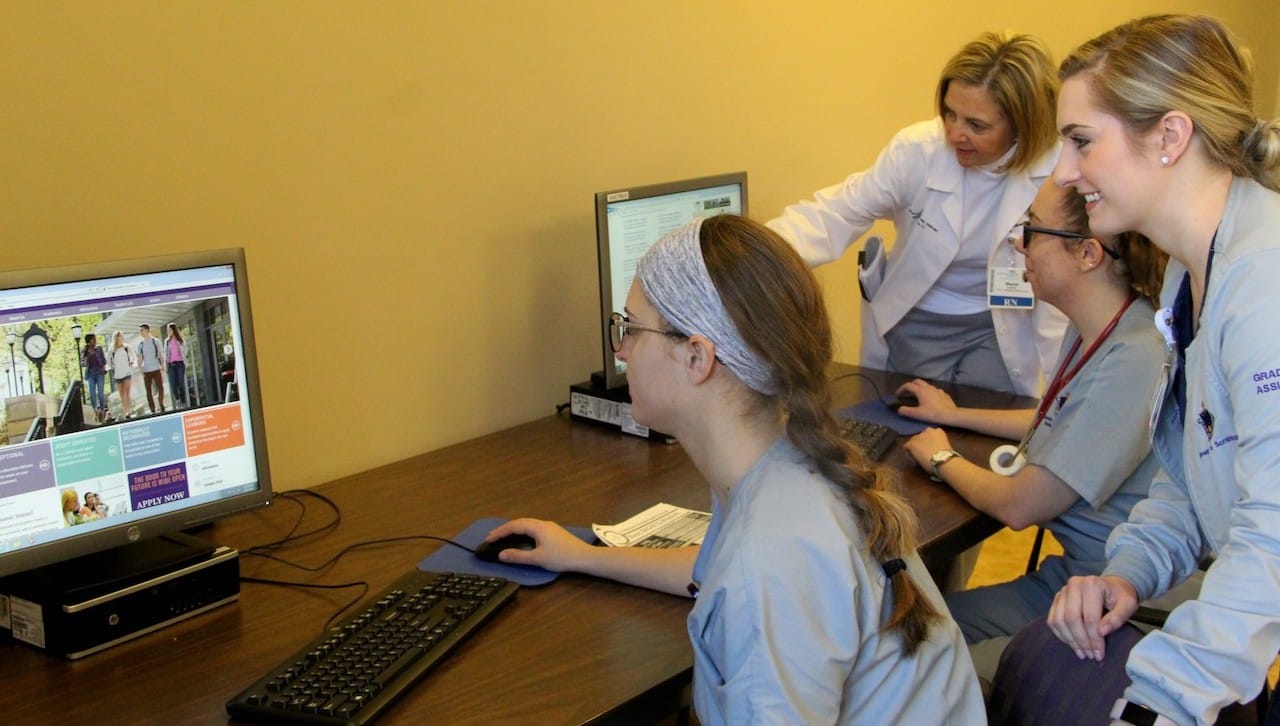Post-pandemic Clinical Nursing Education

“Post-pandemic clinical nursing education: The value of academic-practice partnerships,” an article written by three University of Scranton professors of nursing, was published in April by American Nurse. In the article, authors Mary Jane K. DiMattio, Ph.D., professor of nursing and director for the University’s Office of Educational Assessment; Sharon S. Hudacek, Ed.D., professor of nursing, and Catherine P. Lovecchio, Ph.D., associate professor of nursing, underscored the benefits of academic-practice partnerships in nursing as seen during the COVID-19 pandemic.
The University has had Clinical Liaison Nurse Academic Practice Partnership with Regional Hospital of Scranton, Moses Taylor Hospital and Geisinger Community Medical Center.
Through this partnership model, the University was able to offer support to its clinical partners coping with the COVID-19 pandemic in several ways, including the donation of Personal Protective Equipment (PPE) supplies from student practical laboratories to partner hospitals and the lending of three ventilators from the University’s nurse anesthetist laboratories. The University’s Nursing Department also produced a video of support and thanks from current students and faculty to Clinical Liaison Nurse partners.
In addition, the article states that “on March 26, 2020, a group of major nursing organizations in the United States endorsed a policy brief to encourage academic-practice partnerships during the COVID-19 pandemic. The brief noted that these models can be both innovative and valuable at this time in history and emphasized the need for safety and alignment of student and nurse skills and competencies.”
The article also noted: “Amidst the seemingly overnight critical demands facing the nursing profession resulting from COVID-19, the Clinical Liaison Nurse (CLN) model may serve as a template for others. The model ensures that nursing students have challenging and complex clinical experiences overseen by both expert staff nurses (CLNs) and academic faculty collaborating at the bedside to prepare new nurses for the adversity they will soon face in the hospital setting.”
The University’s Clinical Liaison Nurse model, a community-based, academic-practice partnership that began in 2009, pairs expert staff nurses with academic faculty to create an improved learning environment for undergraduate student nurses and an added level of safety for patients.






